
Kód: 04331073
Don Catrin De La Fachenda
Autor Jose Joaquin Fernandez de Li
Completed in 1819 and approved by the censorship in 1820, "Don Catrín de la Fachenda" was the last novel written by José J. Fernández de Lizardi, and the only one that remained unpublished until 1832, five years after the death of ... celý popis
- Jazyk:
 Španělština
Španělština - Vazba: Brožovaná
- Počet stran: 120
Nakladatelství: StockCERO, 2009
- Více informací o knize

Mohlo by se vám také líbit
-

The Breaker. Bd.1
357 Kč -

Doctoral Examination Process: A Handbook for Students, Examiners and Supervisors
1250 Kč -

Flight Performance of Fixed and Rotary Wing Aircraft
2112 Kč -

European Competition Law Annual 2002
7856 Kč -

There is no rose
116 Kč -

Battle for the Nether: A Gameknight999 Adventure
215 Kč -

Birch Dene. a Novel. Vol. III.
920 Kč
Darujte tuto knihu ještě dnes
- Objednejte knihu a zvolte Zaslat jako dárek.
- Obratem obdržíte darovací poukaz na knihu, který můžete ihned předat obdarovanému.
- Knihu zašleme na adresu obdarovaného, o nic se nestaráte.
Více informací o knize Don Catrin De La Fachenda
Nákupem získáte 67 bodů
 Anotace knihy
Anotace knihy
Completed in 1819 and approved by the censorship in 1820, "Don Catrín de la Fachenda" was the last novel written by José J. Fernández de Lizardi, and the only one that remained unpublished until 1832, five years after the death of its author. At first glance, the novel does not seem -at least morally- to doubt: bad characters die, "catrinismo" is sensationally defeated and the truth left standing is monopolized by the clergy, military, and nobility. Perhaps dazzled by the canonization process that Fernández de Lizardi underwent at the hands of liberal historiography towards the end of the 19th century, critics tend to read "Don Catrín de la Fachenda" as the representative of a colonial order that an emergent Mexican nation must destroy in order to advance, free from those elements that halt progress, toward the promising period of liberal modernization. However, one can also trace in the protagonist the signs of the anxiety Lizardi experienced due to the development of a revolution that sooner rather than later would impose what he perceives as a materialist and bourgeois social code. This is probably why all political expectations in the novel rely on those redeemer-characters that form part of a colonial apparatus that Lizardi seems committed to modernize at all costs: clergymen that quote Rousseau, military officials who declare their loyalty to the king and the law, creole-aristocrats that do not speak of a nobility based on blood but of a nobility of virtues, and lettered men who fervently trust in the power of religion, education and work. Displaying what could be classified as a monarchical-constitutional reformism, Lizardi expects such privileged agents to carry out, without violence, the political and social changes needed in New Spain at the beginning of the 19th Century. Far from being in line with a view of Lizardi as revolutionary and liberal, the results of the clash of discourses that occurs within "Don Catrín de la Fachenda" seems to confirm the author's nostalgia for a colonial order in which eternal truth, honor and authority prevail as bastions of the church, the army and the nobility. In the current edition, María Eugenia Mudrovcic undertakes the analysis of Lizardi's last novel as well as provides notes that facilitate an in depth understanding of a text that though entertaining, is complex and contradictory.
 Parametry knihy
Parametry knihy
672 Kč
- Plný název: Don Catrin De La Fachenda
- Autor: Jose Joaquin Fernandez de Li
- Jazyk:
 Španělština
Španělština - Vazba: Brožovaná
- Počet stran: 120
- EAN: 9781934768297
- ISBN: 1934768294
- ID: 04331073
- Nakladatelství: StockCERO
- Hmotnost: 188 g
- Rozměry: 229 × 152 × 7 mm
- Datum vydání: 26. October 2009
Oblíbené z jiného soudku
-

Short Stories in Spanish for Beginners
316 Kč -
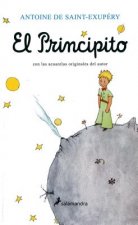
El principito
185 Kč -
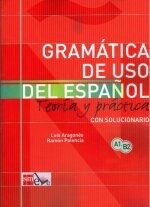
Gramática de uso del español: Teoría y práctica A1-B2
522 Kč -
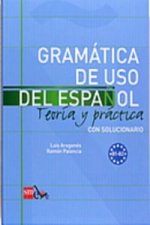
Gramatica de uso del Espanol - Teoria y practica
419 Kč -

Pack DELE B2 (libro + claves)
685 Kč -
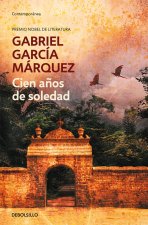
Cien años de soledad
311 Kč -

EN AGOSTO NOS VEMOS
512 Kč -
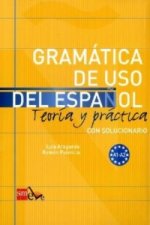
Gramática de uso del Español - A1- A2
655 Kč -

DELE escolar - Preparación al Diploma de Español - A1
474 Kč -

GRAMATICA DE USO DEL ESPANOL C1-C2 Teoría y práctica con solucionario
456 Kč -

365 cuentos clásicos
419 Kč -

Short Stories in Spanish for Intermediate Learners
274 Kč -

DELE escolar - Preparación al Diploma de Español - A2/B1
474 Kč -
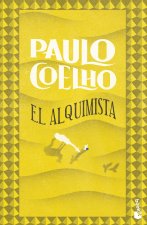
El Alquimista
266 Kč -

DULCES SUEÑOS, MI AMOR
88 Kč -

Uso Interactivo del vocabulario
477 Kč -

Harry Potter y la piedra filosofal
319 Kč -

Impresiones A1: Student Book
811 Kč -

Uso interactivo del vocabulario B2-C2
525 Kč -

Harry Potter y la piedra filosofal
306 Kč -
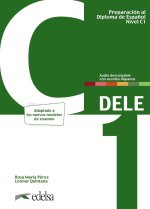
PREPARACION AL DELE C1 LIBRO DEL ALUMNO NUEVA EDICION
659 Kč -

El Poder Del Ahora, Una Guia Para L A Iluminacion Espiritual
281 Kč -

Cómo Hacer Que Te Pasen Cosas Buenas: Entiende Tu Cerebro, Gestiona Tus Emociones, Mejora Tu Vida
493 Kč -

Harry Potter y el prisionero de Azkaban
342 Kč -

Y NO QUEDO NINGUNO
266 Kč -

Valeria en blanco y negro / Valeria in Black and White
266 Kč -
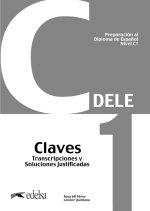
PREPARACION AL DELE C1 CLAVES NUEVA EDICION
226 Kč -

365 Cuentos Y Rimas Para La Hora de Dormir = 365 Tales and Rhymes for Bedtime
355 Kč -

Aula Internacional neu. Bd.3
866 Kč -
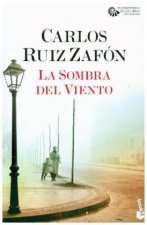
La Sombra del Viento
316 Kč -

La casa de los espiritus
266 Kč -

LAS MUJERES QUE AMAN DEMASIADO
292 Kč -

Especial DELE B1 Curso completo - libro + audio descargable
677 Kč -

LA RATITA PRESUMIDA
77 Kč -

Valeria en el espejo
266 Kč -

Suena Nuevo 1 Cuaderno de ejercicios
314 Kč -
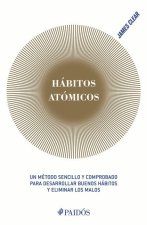
Hábitos Atómicos / Atomic Habits (Spanish Edition)
344 Kč -

Solo mientras tanto
217 Kč -

Nuevo Español en marcha 1
458 Kč -

Uso de la gramática elemental
525 Kč -

En Agosto Nos Vemos / Until August
546 Kč -

Harry Potter y la camara secreta
342 Kč -

A TRAVES DE MI VENTANA (EDICION PELICULA) (TRILOGIA HERMANOS HIDALGO 1)
292 Kč -
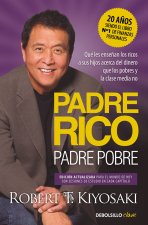
PADRE RICO PADRE POBRE EDICION ACTUALIZADA
292 Kč -

PACO Y LA MÚSICA AFRICANA
406 Kč -

PREPARACION DELE ESCOLAR A2/B1 CLAVES TRANSCRIPCIONES
262 Kč -

NUEVO SUEÑA 1. LIBRO DEL ALUMNO A1-A2
655 Kč -

Todo lo que sé sobre el amor
266 Kč -

Estuche El tiempo entre costuras + Sira
570 Kč
Osobní odběr Praha, Brno a 12903 dalších
Copyright ©2008-24 nejlevnejsi-knihy.cz Všechna práva vyhrazenaSoukromíCookies



 Vrácení do měsíce
Vrácení do měsíce 571 999 099 (8-15.30h)
571 999 099 (8-15.30h)